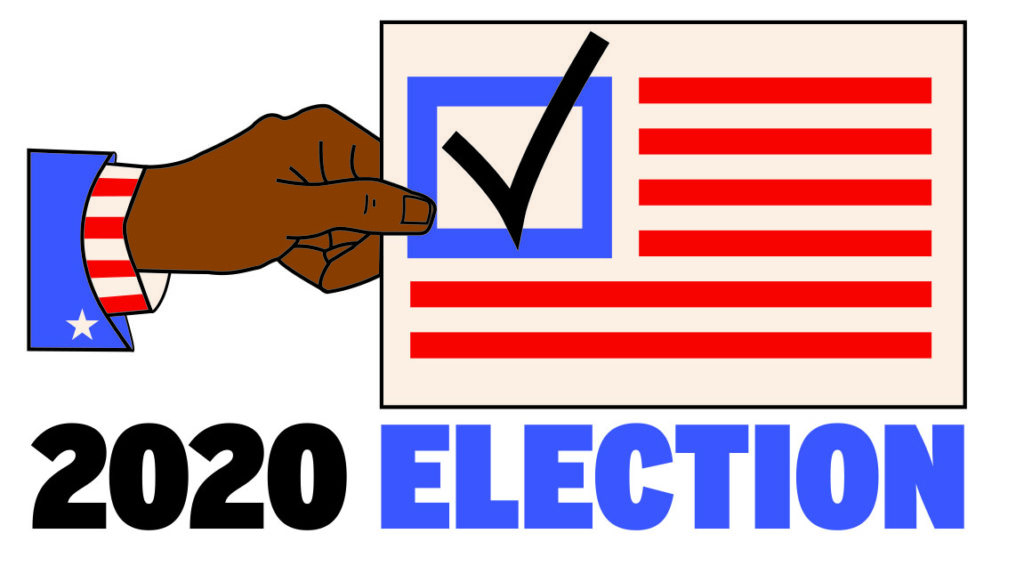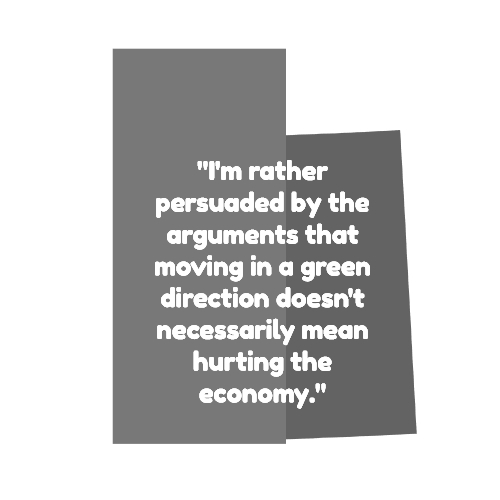
Editor’s note: As the Nov. 3 election draws near, the Daily Universe is exploring different national and local issues impacting voters in a series of stories.

America’s election season includes a lot of discussion about the impact of climate change on the environment. Though not as hotly debated as other topics during the recent debates, research shows that the action taken — or not taken — in the next few years could greatly impact the lives of people worldwide in the future.
Trump’s presidency on environmental action

Positions taken by both President Donald Trump and former Vice President Joe Biden on environmental policies are very different. Trump’s actions regarding climate change have been focused on benefiting the working class. Changes that have been made since he was in office include pulling out of the Paris Accord, in addition to “(rolling) back a number of Obama Environmental Records,” as mentioned in the first presidential debate.
Throughout the debate, Trump continued to push his plan to address the nation’s wildfire disasters through the Billion Tree Project.
During the 2020 Vice Presidential Debate, Vice President Mike Pence further explained that he and Trump hope to reduce CO2 emissions through fracking, natural gas and innovation. Pence did not share details about said innovations.
Biden’s plans for the environment
During the first presidential debate, Biden proposed “$2 trillion in green jobs,” “ending the use of fossil fuels to generate electricity by 2035 and zero-emission of greenhouse gasses by 2050.” Biden said that he plans to transition the federal motor vehicle fleet to electric power and will place “500,000 charging stations along all of the highways.” He continued to say that the first thing he would do for the environment would be to “(re)join the Paris Accord,” an agreement within the United Nations Framework Convention on Climate Change dealing with greenhouse-gas-emissions mitigation, adaptation and finance.
The agreement was signed in 2016 in the first year of President Obama’s administration, but Trump pulled the U.S. out of the deal last year.
During the vice presidential debate, Kamala Harris said Biden would not ban fracking.
According to researchers, the consequences of these actions play a large role in defining the sustainability and health of the United States.
How the public feels
Emilee Severe, a senior and president of the BYU Environmental Science Club, remarked on the lack of support Trump has shown for environmental policies.
“He’s not really well known for the policies that he’s implemented, but all the policies that he’s rolled back. And so, that’s alarmed a lot of people in the environmental community,” Severe said. Then speaking about Biden, she said, “Climate change and environmental policies are really at the core of his election campaign.”
Severe isn’t alone in her desire to take care of the environment, but she also believes in strategic spending. Zachary Bryan, a sophomore studying pre-business, shared his opinion regarding how the two leading presidential candidates are approaching these environmental policies.

Bryan stated that although he doesn’t agree with Biden’s campaign, he doesn’t agree with “the regulations and policies (Trump) has been rolling back.”
“While I appreciate the idea of helping the economy, I believe that we also have a responsibility to care for the environment,” Bryan said. However, he also emphasized that he does not appreciate “excessive government spending.”
Ben Abbott, a BYU professor of plant and wildlife sciences, said although Democrats and Republicans have different opinions on the cause of climate change, many people from both parties still don’t know how the system of climate change works.
“Neither side understands it very well,” Abbott said. He noted how climate change is a scientific issue that people may or may not accept based on their culture. “What we should really do is look at the science.”
Abbott said although environmental policies have become a partisan issue, it is not a partisan issue for researchers. The scientific process that he and others follow has an “extreme level of scrutiny” that must be passed for research to be published. According to Abbott, scientists have shown that “humans are causing climate change.” He stated further that the consequences of “continuing down” the current path would be bad. However, Abbott noted that changes don’t only need to be made on a national scale.
“Economically, many legislators look to the state level to say what is possible,” he said.
What communities can do to help
George Handley, the current chair of the Provo City Council, said Provo is in “control of (its) own fate in some ways,” and the city is “less vulnerable to political swings from left to right.”
Although changes to help the environment can and are being made at the local level, Handley said that change also depends on decisions made both nationally and internationally.
“In the meantime, there are all kinds of real practical local impacts that can have for the better,” Handley said.
One BYU professor making an impact is Arden Pope III, a BYU economics professor. One of the research projects conducted by Pope and colleagues examined air pollution in Utah County from the spring of 1985 to the winter of 1989. The study found an association between the number of deaths and the amount of pollution in Utah Valley.
In an interview, Pope said the studies he and his colleagues conducted were “quite controversial” at the time, particularly because Geneva Steel was one of the county’s largest employers and biggest polluters. However, there have since been multiple studies published that have done a similar sort of analysis.
Even more recent studies have shown that air pollution contributes to disease. There could even be a potential connection between air pollution and the number of COVID-19 deaths, he said. However, Pope said it’s too soon to be forming reliable scientific conclusions about a strong association between the two.
In order to address the issues regarding the correlation between air pollution and death, steps must be taken to improve the environment. According to Pope, Handley and Abbott, wisely working to improve the environment should not negatively impact the economy.
“The simple story of ‘Oh, it’s either the economy or the environment’ is simply not true,” Abbott said.
Handley’s opinion fell closely in line with Abbott’s. “I’m rather persuaded by the arguments that moving in a green direction doesn’t necessarily mean hurting the economy.”





